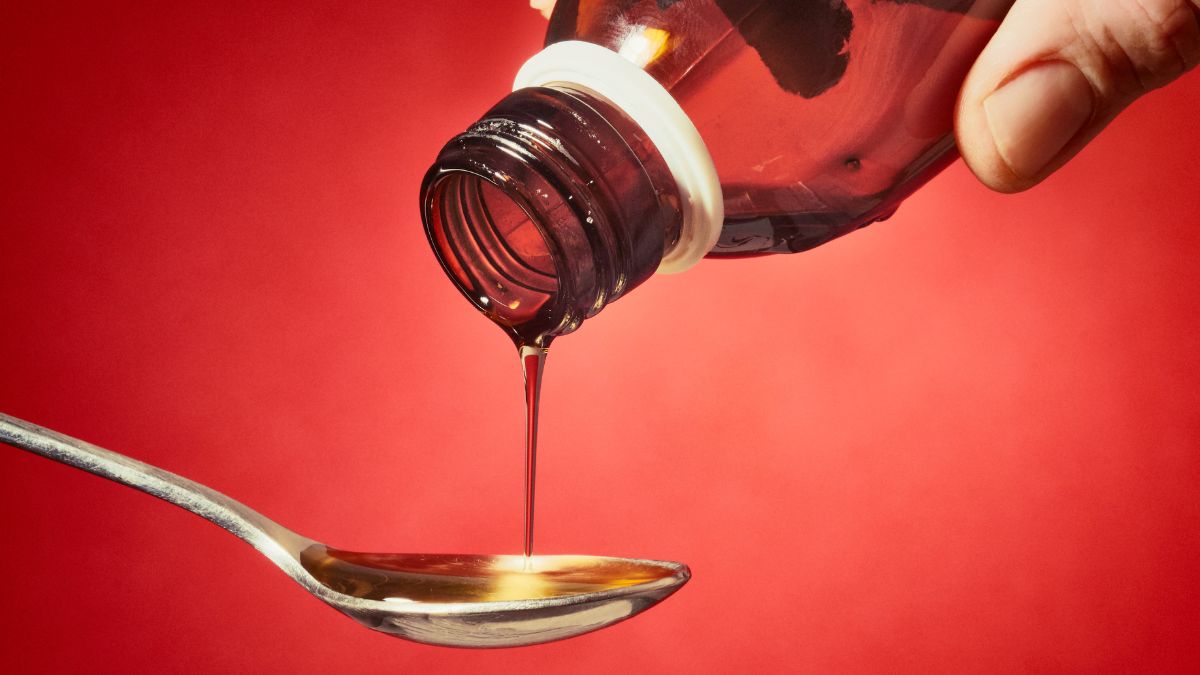Watching your child struggling with substance use is a harrowing experience - whether they are 9 or 99. But this is the thing - when your child is a minor, you can, as a parent, engage in informed decision-making to get the care your child needs and deserves. But as parents of adult alcoholics, things can get challenging real fast. Still, there are some things you can do as a parent. In this blog, we seek to provide help for parents of alcoholics by shedding light on the challenges and the road ahead.
What Are Adult Alcohol Abuse Signs?
To begin with, let us first seek to recognize the signs of alcohol abuse in adults. If you know what it is, you are in a position to enable your adult child to get the care they need.
- Strong cravings and urges to use alcohol
- Heavy and more frequent use of alcohol
- Spending a lot of time acquiring and using alcohol
- Prioritizing alcohol over everything else in life - like studies, career, and interpersonal/social relationships.
- Using alcohol despite its ill effects on physical and psychological health.
- Using alcohol in high-risk circumstances. For example, driving under the influence.
- Developing tolerance, which is when a person needs more alcohol to achieve the desired effect.
- Experiencing intensely unpleasant withdrawal symptoms in the case of reducing or stopping alcohol intake abruptly.
Call Design for Recovery to Begin Your Healing Journey!
Reach out to our team to discuss sober living options and next steps toward a healthier routine.
How to Support an Adult Child with Alcoholism?
When you see your adult child struggling with alcoholism, it can be painful and frustrating. You may have already tried different ways to get them the care they need, but they just seem unwilling to do so. Alcoholism or alcohol use disorder is a complex condition - deeply intertwined in the intricacies of genes, environment, family, and societal patterns. A very common thing is that adult children of alcoholics or alcoholic parents repeat the patterns they have seen growing up, and this pattern becomes difficult to break. But it is not impossible.
Regardless of their age, your love, concern, and a non-judgmental approach are the best ways to get to your child, who can eventually show the desire to change. While you cannot enforce treatment on your child as parents of adult alcoholics, you can still take the following steps:
- Set aside a time to speak. Do this when they are sober so that they are more likely to listen to you.
- Be direct, but remember to be empathetic. Sometimes, they might not respond to your empathy and understanding the way you want them to; still, avoid getting confrontational or rash. It is alcoholism that is the enemy - never lose sight of this. Let them know they are your child and you do not want to see them suffer.
- Communication goes both ways - so listen to them. Let them express whatever it is they want to share. Create a safe environment where they can be open and honest with you.
- Let them know you are a team - that you understand recovery is challenging and you are willing to do whatever it takes to ease this journey for them.
- Keep practical options ready. Your child may eventually express the desire to change, so encourage them to reach out to licensed and trained mental health practitioners who can offer them real and practical direction. If you can suggest someone, do so.
Also, Read: How to Help an Alcoholic Parent?
How to Set Boundaries with an Alcoholic Adult?
Alcohol use can take a toll on the healthiest of relationships - boundaries get blurred, and as parents of adult alcoholics, you can feel stressed and burned out by doing too much. But remember this: whether your adult child is struggling with substance use or is actively receiving care, you need to care for yourself, too. This begins with setting personal boundaries. You can set personal boundaries while helping an alcoholic adult child. Here are a few examples:
- Do not allow alcohol or drugs in your home.
- Do not allow them to use or become intoxicated around you.
- Do not engage or let them engage with you when they are using or intoxicated.
- Do not let them blame you; at the same time, you need to remember you are not to be blamed for their substance use struggles either.
- Do not buy them substances.
- Do not give them money to buy substances.
- Do not bail them out of the consequences of their substance use - like legal troubles.
- If you have set consequences for their substance use, then follow through with them.
- Hold them responsible for their recovery - especially when they miss out on therapy, medication, recovery meetings, and so on.
- Your safety is of utmost importance. If you feel unsafe around your adult alcoholic children, then do not let them into your home. At any point in time, if you feel you are in danger, call emergency services like 9-1-1 immediately.
Personal boundaries can be physical (physical space), emotional (protecting your emotional well-being), and internal (your principles and ethics). Knowing what your boundaries are and communicating them clearly and directly is not equal to distancing or detachment. It is asserting your right to respect, dignity, and safety for your health and well-being.
Treatment Options for Adult Alcoholism: What Parents Should Consider?
Alcoholism can lead to a vicious cycle of damage that seems never-ending. It can often co-occur with other mental health conditions as well. But no matter how dire it may seem, there is hope for recovery in the different care options available to you. As parents of adult alcoholics, knowing these options can equip you with information and keep you involved in your child’s recovery journey.
Alcohol use disorder can be treated in both residential and outpatient settings. This is known as rehabilitation or rehab. Residential rehab typically lasts for months, and the person is cut off from familiar environments filled with triggers and temptations leading them to substance use. On the other hand, outpatient rehab is when your child receives intensive care and structure for certain scheduled hours per day while being able to return to the comfort of their home at night. Based on needs assessed by healthcare providers, they may benefit from programs like partial hospitalization (PHP) or intensive outpatient (IOP). PHP can run up to 8 hours per day and 5 days per week, while IOP can run up to 5 hours per day and 3 days per week.
Both residential and outpatient rehab programs use a combination of psychotherapy, medication management, social support, relapse prevention, and aftercare for a lasting recovery. Reach out to our team to discuss sober living options and next steps towards your empowering recovery journey.
Sober living homes are also an option you need to be aware of. During or after intensive rehab, when they need the structure and support to transition back to independent living, sober living homes can offer them a substance-free environment, structure, peer accountability, and a sense of community as they establish and maintain their recovery.
Contact Design for Recovery Today!
Fill out our quick form to connect with a peer mentor and learn how our sober living community supports accountability, structure, and personal growth in recovery.
Coping with Emotional Stress as a Parent of an Alcoholic
As parents of adult alcoholics, you are in many ways still their caregiver - and caregiver stress is a real thing. It can affect you physically and mentally, especially when you are caring for your adult child in some way or another. You can feel depleted, overwhelmed, and unable to cope.
During these times, you need to remind yourself that you are in no way responsible for their substance use. Furthermore, you have your life, needs, and desires, just like everyone else does, and caring for an adult alcoholic child in no way means you take a backseat in your own life. You need to prioritize your self-care, and here are some tips:
- Ensure your basic needs are met. This means maintaining a nutritious diet, personal hygiene, physical exercise, and a consistent sleep pattern.
- Set personal boundaries - physical, emotional, and internal.
- Prioritize yourself. Make time for the activities and other relationships you enjoy.
- Have a life outside of this parent-child dynamic to ensure you are surrounded by social support whenever you need a shoulder to lean on.
- As we told you, caregiver stress can become very overwhelming. Seek out your doctor or therapist to cope with these challenges in a way that is good for you and your child.
- Learn about the resources and support systems for parents of adult alcoholics in your community and reach out to them regularly. We shall elaborate on them below.
Resources and Support Groups for Families of Adult Alcoholics
You may have heard of 12-step recovery groups for alcoholics like Alcoholics Anonymous and Narcotics Anonymous. They are very crucial to recovery. But there are specific groups such as these for families of adult alcoholics as well:
Al-Anon:
Al-Anon is a support program for families of alcoholics, and they offer group meetings both in-person and online. Al-Anon Online Chat is also available for you whenever you need to talk to someone. You can share and learn from shared experiences as you gain the tools to handle the challenges of your child’s recovery better.
Families Anonymous:
Families Anonymous is for families who have experienced a pattern of self-destructive behavior (like substance use) in their loved ones. You can attend them in person or online. Meetings without Walls are online Families Anonymous meetings.
Families of Addicts (FOA):
FOA’s mission is anchored in reducing the stigma and discrimination surrounding substance use while also ensuring that people receive adequate treatment and recovery support services focused on the entire family as a unit.
Ready to Support Your Loved One's Recovery Journey?
Watching a loved one battle alcoholism weighs heavily, yet structured sober living offers real hope after treatment. Design for Recovery provides sober homes for men emphasizing accountability, daily routines, and peer mentorship to reinforce sobriety skills.
Our environment fosters community while residents focus on 12-step involvement and personal growth. Parents often find peace knowing their adult child lives in a safe, substance-free space with guidance.
Reach out today to explore how our sober living supports lasting change, and take that step toward family healing together.
- What Are Adult Alcohol Abuse Signs?
- How to Support an Adult Child with Alcoholism?
- How to Set Boundaries with an Alcoholic Adult?
- Treatment Options for Adult Alcoholism: What Parents Should Consider?
- Coping with Emotional Stress as a Parent of an Alcoholic
- Resources and Support Groups for Families of Adult Alcoholics
- Ready to Support Your Loved One's Recovery Journey?
Begin Lasting Sobriety Now!
Frequently Asked Questions
It’s crucial to approach this situation with understanding and compassion. Start by educating yourself about addiction and its treatments. Open a line of communication with your son, expressing your concerns without judgment. Encourage him to seek professional help, such as therapy or a rehabilitation program. Remember, you cannot force him to get help; he must make that decision himself.
If your son is battling drug addiction, professional help like detox, rehab, therapy, and counseling is available. The best choice depends on the addiction’s severity and the substance. As a sober living facility, we’re here to guide you. If you need more information or guidance, feel free to contact us.
Support can come in many forms, including emotional support, attending therapy sessions with him, and encouraging a healthy lifestyle. It’s also important to set boundaries and avoid enabling behaviors. Celebrate his milestones in recovery, and be patient and understanding during setbacks.
Yes, there are many resources available for parents of addicts. Support groups, such as Al-Anon, offer a community of individuals who are experiencing similar challenges. These groups can provide emotional support, advice, and strategies for coping. Therapy or counseling can also be beneficial for parents dealing with the stress and emotional toll of having a child with an addiction.
It’s important to remember that you also need care and support during this time. Maintain a healthy lifestyle, seek support from friends, family, or a support group, and consider seeking therapy or counseling for yourself. Setting boundaries is also crucial to prevent burnout and emotional exhaustion.
Open communication is key. Discuss the situation with other family members in an age-appropriate manner and encourage them to express their feelings and concerns. It may also be beneficial for the entire family to attend family therapy sessions. Establish boundaries to protect other family members from potential harm related to your son’s addiction.
Open communication is key. Discuss the situation with other family members in an age-appropriate manner and encourage them to express their feelings and concerns. It may also be beneficial for the entire family to attend family therapy sessions. Establish boundaries to protect other family members from potential harm related to your son’s addiction.







Written By
David Beasley